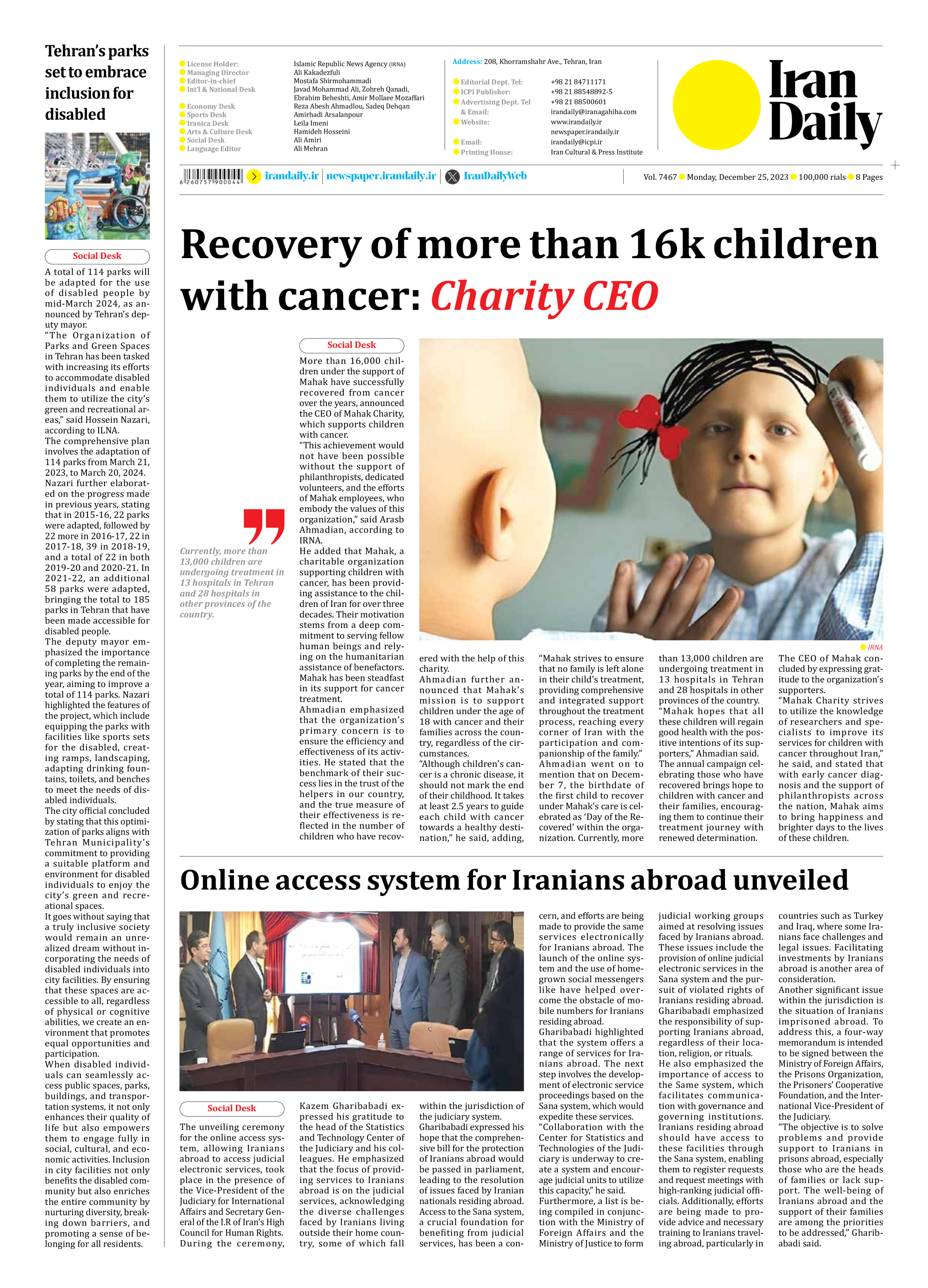
Online access system for Iranians abroad unveiled
The unveiling ceremony for the online access system, allowing Iranians abroad to access judicial electronic services, took place in the presence of the Vice-President of the Judiciary for International Affairs and Secretary General of the I.R of Iran’s High Council for Human Rights.
During the ceremony, Kazem Gharibabadi expressed his gratitude to the head of the Statistics and Technology Center of the Judiciary and his colleagues. He emphasized that the focus of providing services to Iranians abroad is on the judicial services, acknowledging the diverse challenges faced by Iranians living outside their home country, some of which fall within the jurisdiction of the judiciary system.
Gharibabadi expressed his hope that the comprehensive bill for the protection of Iranians abroad would be passed in parliament, leading to the resolution of issues faced by Iranian nationals residing abroad. Access to the Sana system, a crucial foundation for benefiting from judicial services, has been a concern, and efforts are being made to provide the same services electronically for Iranians abroad. The launch of the online system and the use of homegrown social messengers like have helped overcome the obstacle of mobile numbers for Iranians residing abroad.
Gharibabadi highlighted that the system offers a range of services for Iranians abroad. The next step involves the development of electronic service proceedings based on the Sana system, which would expedite these services.
“Collaboration with the Center for Statistics and Technologies of the Judiciary is underway to create a system and encourage judicial units to utilize this capacity,” he said.
Furthermore, a list is being compiled in conjunction with the Ministry of Foreign Affairs and the Ministry of Justice to form judicial working groups aimed at resolving issues faced by Iranians abroad. These issues include the provision of online judicial electronic services in the Sana system and the pursuit of violated rights of Iranians residing abroad. Gharibabadi emphasized the responsibility of supporting Iranians abroad, regardless of their location, religion, or rituals.
He also emphasized the importance of access to the Same system, which facilitates communication with governance and governing institutions. Iranians residing abroad should have access to these facilities through the Sana system, enabling them to register requests and request meetings with high-ranking judicial officials. Additionally, efforts are being made to provide advice and necessary training to Iranians traveling abroad, particularly in countries such as Turkey and Iraq, where some Iranians face challenges and legal issues. Facilitating investments by Iranians abroad is another area of consideration.
Another significant issue within the jurisdiction is the situation of Iranians imprisoned abroad. To address this, a four-way memorandum is intended to be signed between the Ministry of Foreign Affairs, the Prisons Organization, the Prisoners’ Cooperative Foundation, and the International Vice-President of the Judiciary.
“The objective is to solve problems and provide support to Iranians in prisons abroad, especially those who are the heads of families or lack support. The well-being of Iranians abroad and the support of their families are among the priorities to be addressed,” Gharibabadi said.







